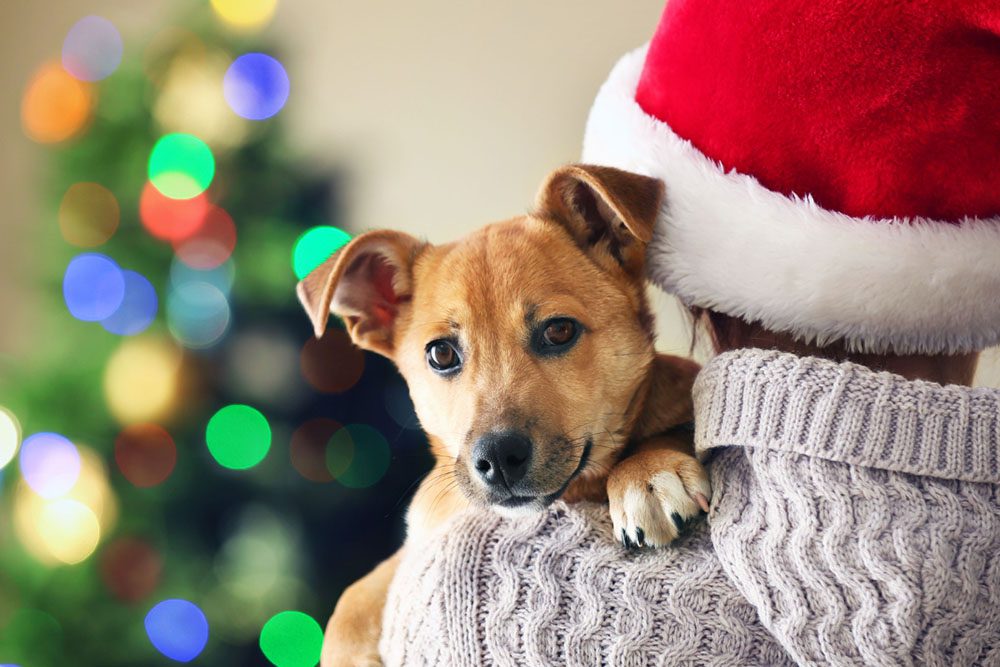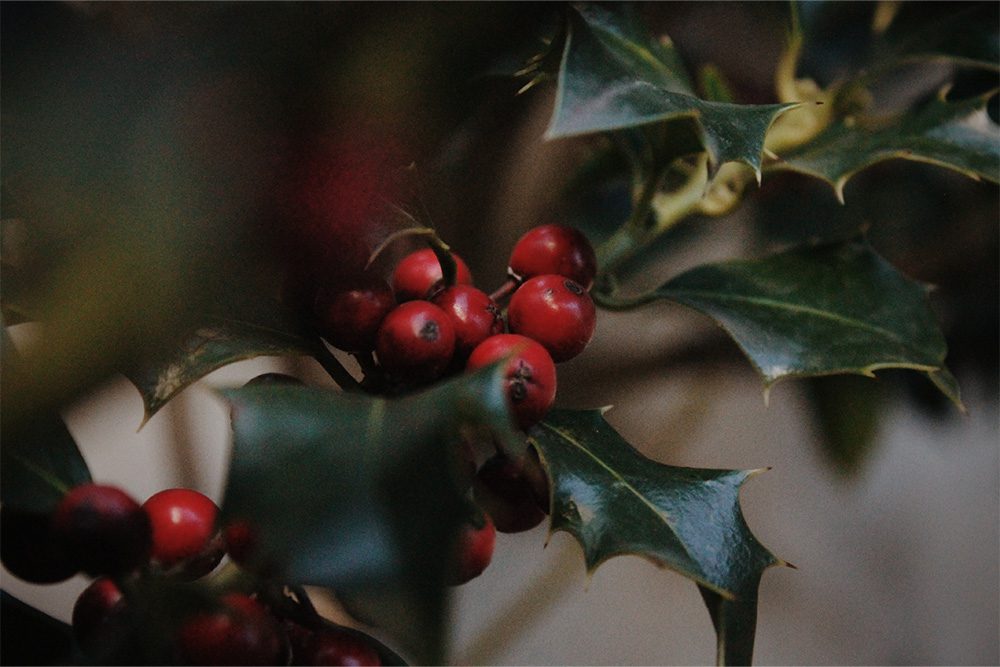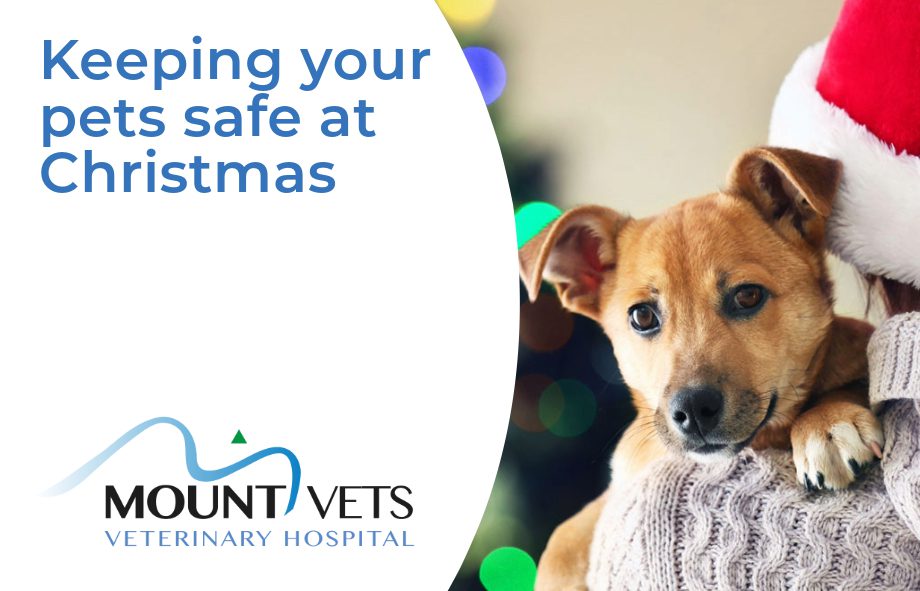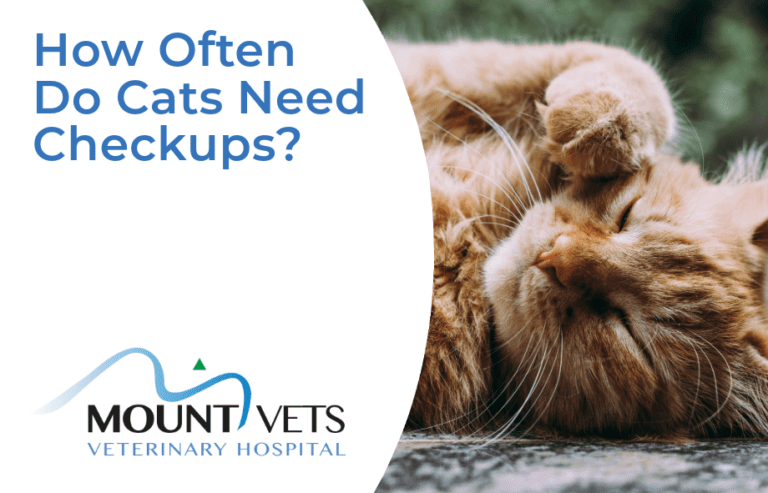Christmas and New Year is an exciting time for everyone. It’s a time of celebration and often includes plenty of seasonal treats, like mince pies, Christmas pudding and chocolate. It’s important however to remember that while your cat or dog may appreciate some Christmas turkey, not all Christmas treats are appropriate for your animal companions to share. Here is a reminder of what can cause a danger to your pets during the Christmas season.

1. Raisins, sultanas and grapes
Raisins and sultanas are a common ingredient in plenty of our traditional Christmas foods, such as mince pies and Christmas puddings. Just like grapes however, they are toxic to dogs and cats. The toxic dose is unknown, so even the ingestion of one raisin or grape should be treated. They have the potential to cause acute kidney failure, so keep them well out of reach!
2. Chocolate
Theobromine which is found in milk and dark chocolate is a toxic compound to dogs and cats. It acts in a similar way to caffeine and can cause gastric upset, an increased heart rate, hyperactivity and even seizures. Toxicity is dose dependent, meaning how poorly your pet will be depends on the amount your pet has eaten and their body weight. Your vet or can advise you on this, or you can use the free “vets now” calculator, linked below.

3. Bones
Bones should generally be avoided for dogs; this is because of the risk of perforations of the gastrointestinal tract as well as well as risk of causing a blockage and fracturing teeth. Turkey and chicken bones as well as cooked bones particularly should be avoided, due to their high risk of splintering. If you really wish to give your dog a bone, a large (such as a thigh bone), uncooked bone should be selected. These have a lower risk of splintering and are more likely to be chewed rather than broken and swallowed.
4. Antifreeze
Ethylene- glycol is the toxic compound found in antifreeze and has an attractive taste to animals, unfortunately it is highly toxic at even small doses. This toxicity most commonly affects cats. Toxicity causes rapid onset kidney failure which can sadly be fatal. Within 12 hours signs can include depression, looking wobbly, hypersalivation and increased thirst and urination, this then progresses to kidney failure after around 24 hours.

5. Christmas plants
Poinsettia, mistletoe and Holly are all not very pet friendly Christmas plants. Poinsettia, when eaten in large quantities, can cause oral pain and vomiting. Luckily the sap is quite bitter, so pets are unlikely to be motivated to do this. Any part of the mistletoe plant is potentially toxic, and depending on the quantity consumed can cause vomiting and diarrhoea. Holly is much similar; the leaves and berries can also cause irritation to the mouth. For both only large quantities cause toxicity.

6. High fat foods
Although a small Christmas treat is unlikely to cause harm, large quantities of new, particularly high fat foods can cause gastric upset to your pet. While the results of this is most likely to be transient vomiting and diarrhoea, in some cases a high fat meal can trigger an episode of pancreatitis. This means inflammation of the pancreas and can be acutely painful to your pet and severe cases can even be fatal. Although any dog can be susceptible to pancreatitis, miniature schnauzers, Yorkshire terriers and cocker spaniels are more commonly affected. Good things in moderation are recommended to avoid a Christmas visit to the vet!


